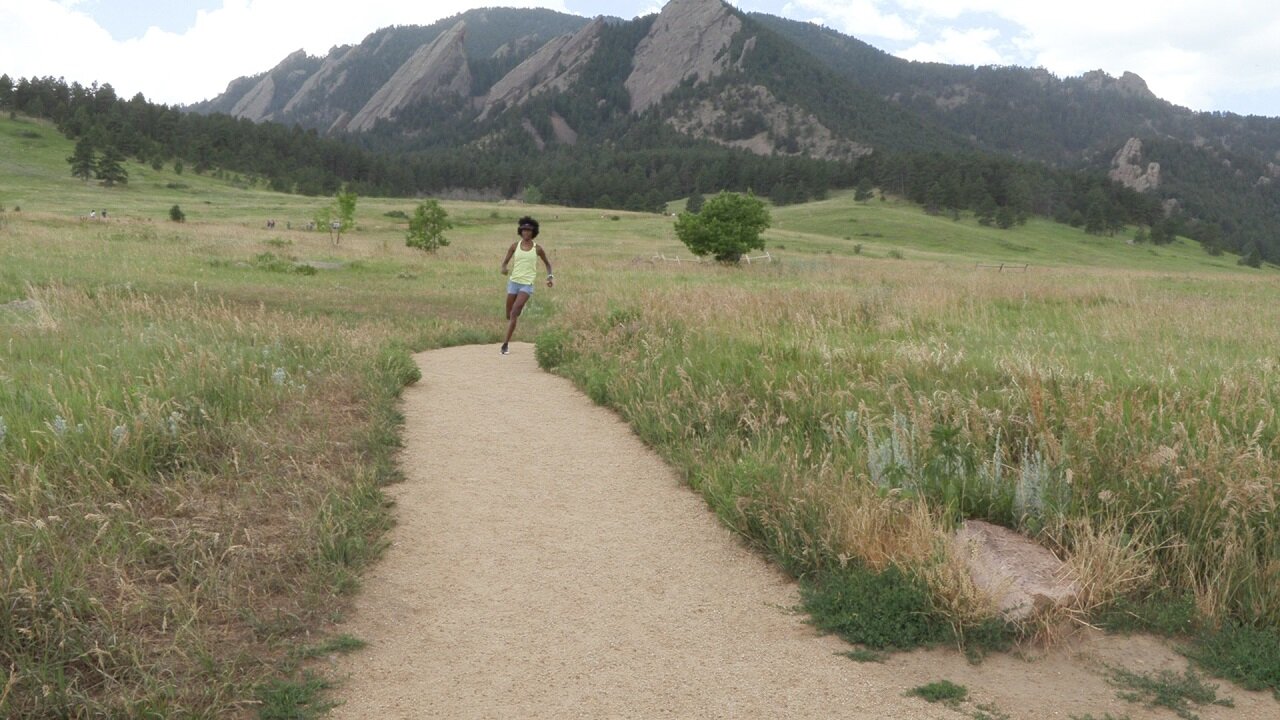A passion for science and the outdoors fuels one woman’s drive to combat climate change

BOULDER COUNTY, Colo. — Peyton Thomas’ dual passions fit together perfectly.
“My pursuit of running has definitely helped me appreciate the environment so much more and has further fueled my academic research,” she said.
Thomas is an environmental scientist with a PhD in marine biology who now does research at the University of Colorado, Boulder on fish physiology in relation to climate change stressors.
“It’s not only these fish that I’m studying that are impacted by this, but there are whole ecosystems and our own lives that are at risk. We see it every day with the increase of all these natural disasters,” added Thomas.
She’s also an avid runner who competed in the Olympic trials for the marathon event in 2020 and loves exploring the outdoors.
“I think the big thing that fueled my passion for running is just the fact that you get to explore all these different places that not a lot of people have the opportunity to do. And I’ve always had an innate curiosity about the environment,” explained Thomas.
Thomas moved to Boulder from Wilmington, North Carolina a few months ago and definitely takes advantage of all the running, hiking and biking trails available in her area.
“Boulder seems like an anomaly because the access to outdoor recreations is sort of ridiculous," she said with a laugh. "It’s sort of crazy and I don’t know how to describe it. It seems like everyone here is super happy, and I think there’s a reason for that because of all the beautiful scenery. Even waking up in the morning and not necessarily going into the mountains but just seeing them is something that is really inspiring.”

Thomas also wants to inspire others like her because as a Black woman scientist in academia, typically she is the only one in the room and that can be tough.
“Even just growing up, I felt very alone. I’d find all these interesting things in science, but I’d never see Black women in the same field,” she explained.
That’s why Thomas joined a nonprofit organization called BWEEMS, which stands for Black Women in Ecology, Evolution and Marine Science. It’s a worldwide network created for people who’ve been historically excluded and overlooked in the sciences.
“It was started by a professor at the University of Miami and it’s been a godsend for me because for my entire academic career I always felt isolated,” Thomas said.
She found out about BWEEMS when she was at a cross-roads in her career, when she was in the middle of earning her doctorate.
“I was like, 'Wow this is amazing. We’re getting connected with so many other Black women who also feel so alone in their own departments because there’s usually only one or two of us in a specific place.'”
BWEEMS helps mentor and connect Black women scientists while encouraging academic institutions to revisit their recruiting practices — something that aligns with Thomas' mission.
“We’re trying to call out academia and other types of scientific organizations and saying you can’t keep doing the same things you’ve been doing to recruit people because it’s obviously not working," said Thomas. "There are so many of us here and we want to be involved.”
Dana Knowles is a multimedia journalist at Rocky Mountain PBS and can be reached at danaknowles@rmpbs.org.
